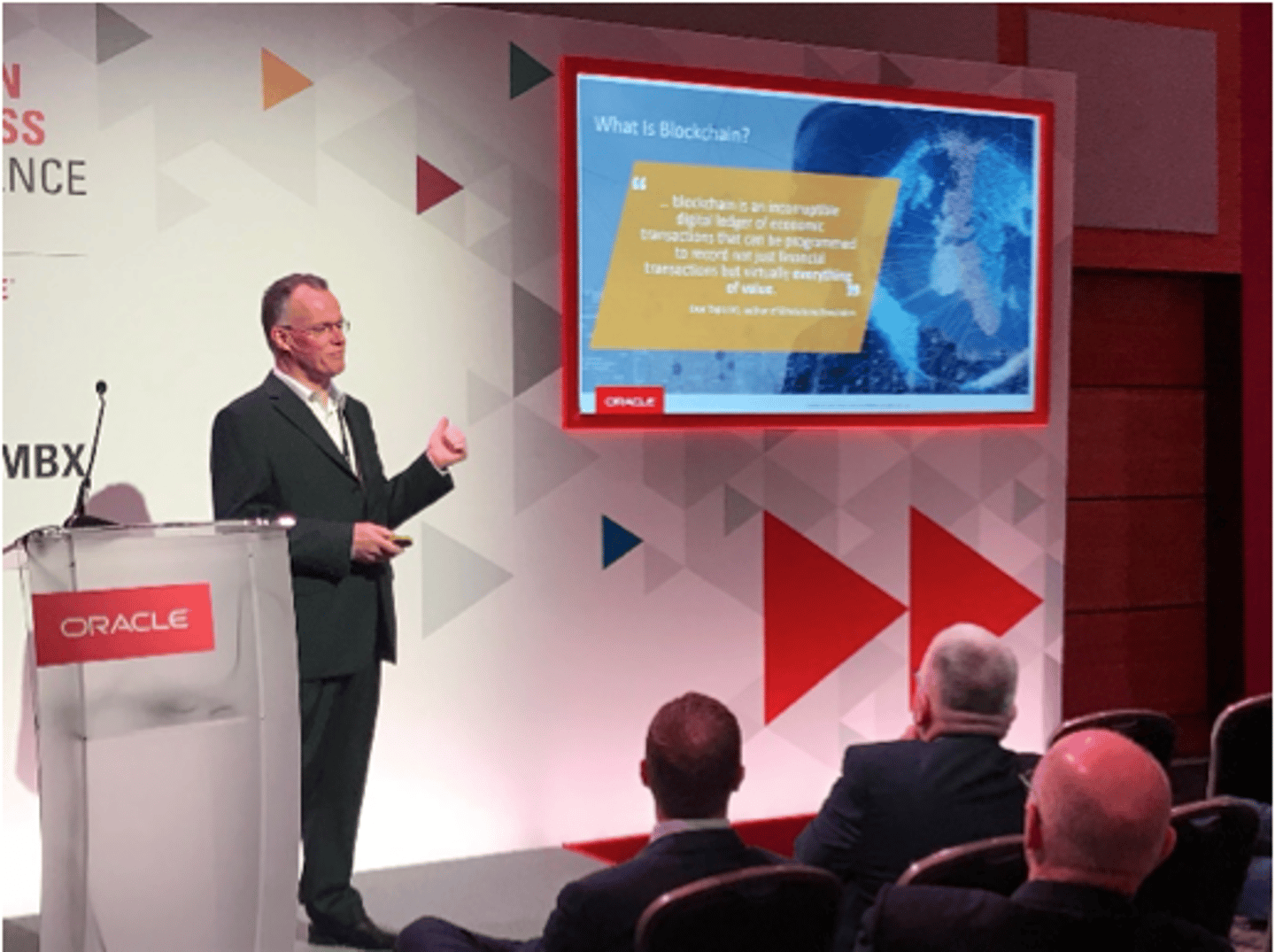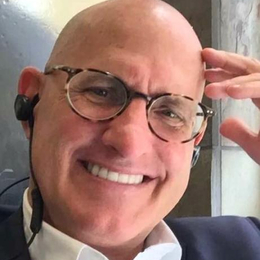IoT, AI and Blockchain – Tomorrow, Today!
Michael’s guest for this blog post is Peter Bambridge, who currently works within Oracle’s Industry Solutions Group, focused on the Consumer Markets.
Peter recently presented at the Modern Business Experience (MBX) events in London and Amsterdam, which had a combined attendance of over 3,700 industry players. Michael asked Peter to discuss not just what he shared, but what he learned, at these events.
MF: So, we all know you’re a coveted thought leader, Peter. Tell us a bit about these last two events you contributed to.
PB: I presented at MBX London on “Unravelling Blockchain” for a cross-industry audience and on “Innovation Technologies for Finance and Supply Chain” as part of a panel. At MBX Amsterdam, I presented on how “IoT, AI and Blockchain’s Impact on the Future of Retail and Consumer Goods” for the industry track. This was a broad spread of topics, but they all focused on how new technologies could be brought to bear on enhancing the effectiveness of the consumer markets, including the core business processes within.
MF: I’m sure your audience was riveted! What did you learn from them?
PB: Well for a start, there is clearly a lot of confusion out there as to what blockchain is all about. Some thought it was all tied to crypto-currencies such as Bitcoin. Others thought it couldn’t scale because of the massive electricity supply required to mine the transactions. The good news is that these are both misconceptions that we discussed and were able to lay to rest.
On artificial intelligence, there was considerable interest in how “next best actions” could be embedded into cloud applications and recognition that having the right data is the key to success.
On the Internet of Things (IoT), the leading interest was in the set of comprehensive applications that can be implemented "out of the box" to quickly realize business benefits. These connected applications include asset monitoring, production monitoring, fleet monitoring, service monitoring and connected worker.
MF: What’s your world view for future developments?
PB: I think we’ll continue to see these technologies being combined more to address the need for delivering business outcomes. One example is the food safety and traceability industry solution that I’m currently working on, where IoT sensors feed data to a supply chain blockchain, enhancing visibility and recall management.
MF: What was the most interesting presentation you attended?
PB: I found the Dutch serial entrepreneur Michael Muller’s contribution most impressive. He shared how he first founded Tango, an unmanned petrol station business, with his business partner Marc Schroder; then Route Mobiel, a roadside assistance company; and more recently the Dutch online supermarket business Picnic BV. Disruptive companies are clearly what he chooses to focus on.
MF: What was so special about Picnic?
PB: Muller explained how Picnic provides free delivery of fresh, locally sourced groceries to consumer homes, at the lowest price, within a 20-minute time slot. The business started in 2015 in Amersfoort, then added other areas such as Utrecht, The Hague, and this year Amsterdam. They now take over 1,000 orders per day, with customers averaging 40 orders per year.
Customers order only through a mobile app and pay in advance for next-day delivery. Learning from old-fashioned milkmen, Picnic has a 100% sustainable fleet of 418 electric delivery vehicles (heading to 1,000 by end of this year) and avoids food waste by only ordering overnight what they've already sold.
Also, they minimize food miles, helping customers avoid shopping trips, and give time back to them by having predictable delivery windows rather than having to wait two or three hours. The app even shows the customer the position of the delivery van geographically as it progresses, achieving 99% on-time delivery. Where traditional delivery models average two customers per hour, Picnic averages 7.5. And the product assortment evolves driven by customer input, so it is demand-driven.
Initial trials in one Dutch town proved very successful. Having raised 100 million Euros, the company is now rolling out aggressively across Holland. Trails have also recently started in the Dusseldorf region of Germany. Traditional grocery retailers need to consider how they will respond when Picnic comes to town.
MF: I’ve a final question after this, but summing up, what is the one big takeaway you got from this whole experience?
PB: That even on the hottest two days of the year so far, thousands of customers see real value in cloud solutions, and how transformational technologies can be adopted quickly and easily to deliver business outcomes to truly realize "Tomorrow, Today."
MF: Got it all — except I just gotta ask: What’s going on in this picture (above) of you presenting in Amsterdam?
PB: MBX was located at the RAI conference and exhibition center, with multiple presentation streams located close together. A busy place. To avoid background noise and distractions from other presentations, everyone in the audience wore Bluetooth headsets. I was tempted to take mine with me!
Peter Bambridge's 36-year career has included working in retail with Marks and Spencer, as well as at a variety software/services organizations focused on addressing the needs of retail and consumer goods manufacturers. A recognized thought leader and IT industry analyst, he is an expert in PLM, ERP, planning, supply chain and space/category management.





